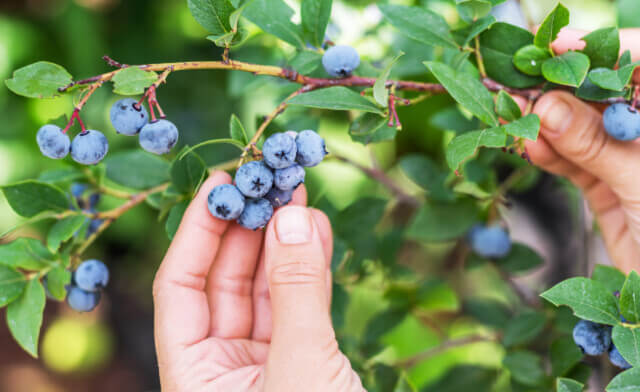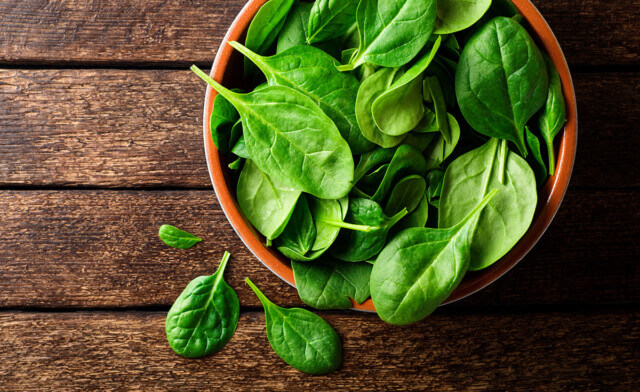9 Great Questions to Ask Before Choosing New Cat Food
If you’re thinking about switching your cat’s food, you’re not alone. In fact, many pet parents go through this process at some point or another. After all, our cats’ needs change as they age, and their dietary requirements can also change over time.
But switching cat food is not a decision to be made lightly, and it’s vital to do your research before making the change to make sure your cat stays happy and healthy. To help you out, we’ve compiled a list of nine great questions to ask before choosing new cat food. Keep reading to learn more so you can make the best decision for your feline friend!
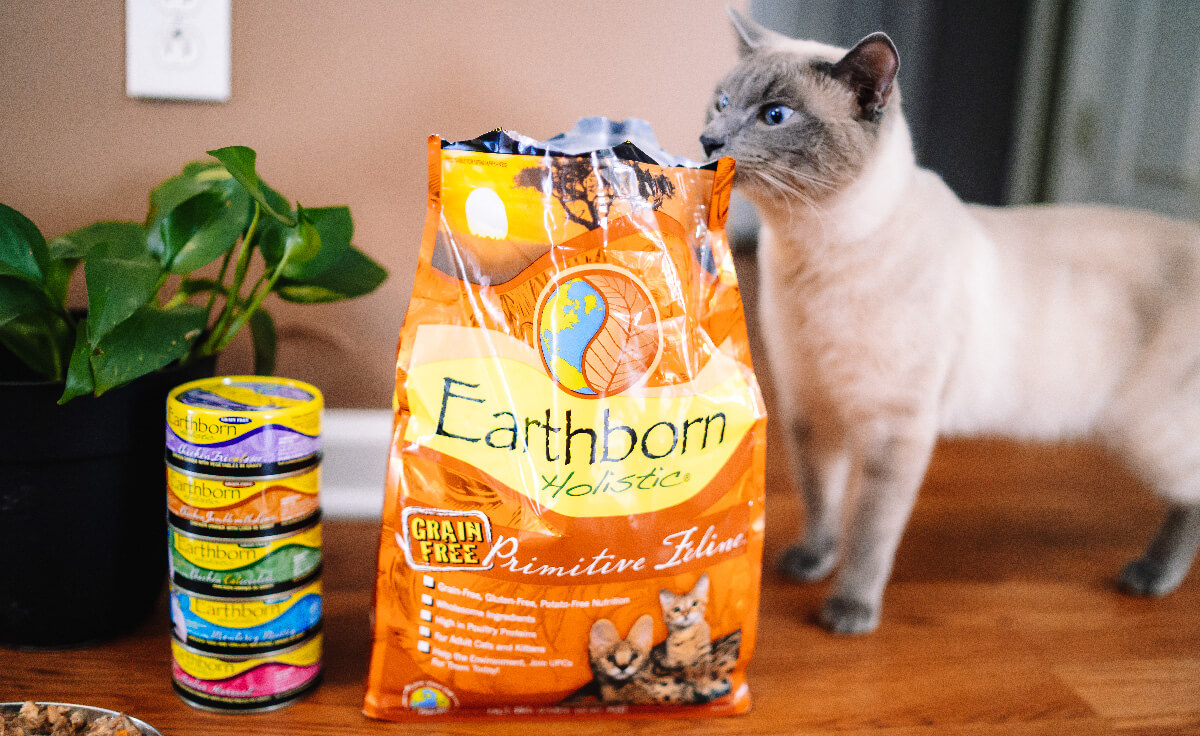
1) Is My Cat Picky?
First, think about whether or not your cat is a picky eater. If they are, it’s important to find a food that they’ll actually eat – otherwise, they may end up becoming malnourished. The good news is that tasty cat food isn’t hard to come by, and there are plenty of options out there to suit even the pickiest of eaters.
Bagged cat food can be a good option for picky eaters, as it often contains a variety of flavors and textures that cats love. However, you may need to experiment with a few different types and flavors before you find an irresistible cat food your kitty loves. You can add a little water to your cat’s food to soften it if they turn their nose up at dry food.
The best dry cat food for picky cats should also be complete and balanced, so your cat gets all the nutrients they need to stay healthy. Picky cats may also benefit from wet cat food, as it often has a stronger flavor than dry food.
If in doubt, make sure to speak to your vet. They will be able to advise you on the best food for your cat, based on their individual needs. The best cat food for picky eaters will be different for every cat, so it’s important to get professional advice before making a switch.
2) Does My Cat Have Allergies?
Another important consideration is whether or not your cat has any allergies. Just like people, some cats are allergic to certain ingredients in their food – and this can cause all sorts of problems, from itchy skin to gastrointestinal issues.
The best food for cats with allergies is a limited-ingredient food that doesn’t contain any of the ingredients your cat is allergic to. Common allergens include beef, chicken, fish, dairy, and corn. Work with your vet to identify what’s triggering your cat’s allergies, and then choose a food accordingly.
If you choose a dry cat food, make sure it meets the criteria above and is made with natural ingredients. The food should also be nutritionally balanced and free from low-quality additives and fillers.
As with dry food, the best wet food for cats with allergies should be complete, balanced, and made with limited ingredients to minimize the risk of an allergic reaction. It’s also important to avoid foods that contain artificial colors, flavors, or preservatives, as these can also trigger allergies in some cats.
Remember, kittens have different nutritional needs than adult cats, so if your cat is under a year old, make sure to choose a kitten food that’s designed for their specific stage of life. The best kitten food for allergies will be made with high-quality limited ingredients, just like the best food for adult cats with allergies.
3) Is My Cat Overweight?
Next, ask yourself if your cat is overweight. If they are, it’s important to find a food that will help them lose weight in a healthy way – and that means avoiding foods that are high in calories and low in nutrition.
Your veterinarian can help you determine if your cat is overweight and, if so, how much weight they need to lose. Once you know this, you can start looking for a good cat food for weight loss that will meet your cat’s specific needs.
If you’re feeding your cat a low-quality diet that’s contributing to weight gain, the first step is to choose better cat food. High protein cat food for weight loss is an excellent option, just make sure to choose a good diet cat food that’s healthy, nutritious, and formulated for your cat’s life stage.
Again, it’s vital to consult with your veterinarian before making any big changes to your cat’s diet. They will be able to advise you on the best food for your cat, based on factors such as their age, weight, and overall health.
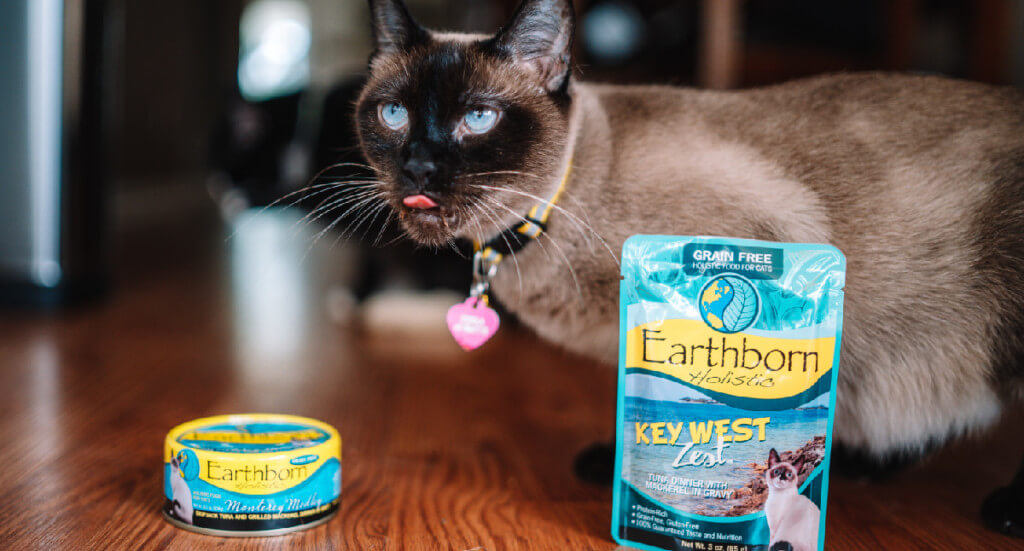
4) Is My Cat Underweight?
Although many cats are overweight, some cats are underweight – and this can be just as big of a problem. If your cat is underweight, it’s important to find a food that will help them gain weight slowly and safely.
Make sure to talk to your vet if you’re concerned that your cat is underweight. They will be able to help you determine if there’s a problem, and if so, how much weight your cat needs to gain. Slow and steady weight gain is important to avoid health problems, so don’t try to force-feed your cat or make any radical changes to their diet without professional guidance.
The best cat food to help gain weight is a high-calorie food that’s rich in nutrients. Wet cat food for weight gain is often a good option, as it’s usually higher in calories than dry food. However, make sure to choose a food that’s complete and balanced, so your cat gets all the nutrients they need.
There are a variety of foods that help cats gain weight, so speak to your veterinarian to see what they recommend. You can also add healthy, pet-safe ingredients like boiled chicken or full-fat yogurt to your cat’s food to help them bulk up.
It’s important to note that the best kitten food for weight gain will be different than the best food for older cats to gain weight. Kittens need a high-calorie diet that supports their rapid growth and development, while adult cats need a more balanced diet to maintain their weight.
5) Does My Cat Have Specific Nutritional Needs?
Some cats have specific nutritional needs that must be met in order to stay healthy. For example, pregnant or nursing cats need food that’s high in calories and nutrients to support their growing babies. Senior cats, on the other hand, may need food that’s easier to digest or that contains joint-supporting ingredients.
Digestive issues are a common problem in cats that many pet parents struggle with. If your furry friend is suffering from diarrhea, constipation, or other gastrointestinal issues, it’s important to find a cat food for digestive issues that will help them feel better.
The best cat food for digestive issues will be easy to digest and contain ingredients that promote gut health. You’ll also want to choose high nutrition cat food to help correct any nutrient deficiencies that may be contributing to your cat’s digestive problems.
If you’re unsure where to start, ask your veterinarian which cat food is healthiest for your cat’s specific needs. When it comes to finding the best cat food, there’s no one-size-fits-all solution. Every cat is different, so what works for one may not work for another.
6) Is My Cat an Adult?
If you have an adult cat, make sure to choose an appropriate adult cat diet. Food for adult cats is different from food for kittens or seniors, as it’s designed to meet the specific nutritional needs of an adult cat.
The best diet for an adult cat is one that’s complete and balanced, providing all the nutrients your cat needs for good health. Healthy soft cat food such as wet food is often a good option for adult cats, as it’s usually packed with nutrients and easy to digest.
When choosing an adult cat food, always check the label to make sure the product is complete and balanced. You can also speak to your veterinarian about the best diet for your cat’s specific needs.
If you have a senior cat, make sure to choose a food that’s easy to digest and packed with nutrients. Senior cats often have trouble digesting certain ingredients, so it’s important to find a food that contains only easily-digestible ingredients.
Cat food for senior cats with sensitive stomachs is usually a good option, as it’s designed to be gentle on the digestive system. If in doubt, ask your veterinarian about the best diet for your aging cat’s individual needs.
7) Should My Cat Have Canned Food?
Quality canned cat food can be a great option for your feline friend. It’s high in protein and moisture, making it an excellent choice for cats that need to gain weight or that have digestive issues.
Canned cat food with gravy is also a good option for cats that don’t drink enough water. Because wet food contains so much moisture, it can help keep your cat hydrated – which is essential for good health.
Top canned cat food like Earthborn Holistic Chicken Catcciatori Chicken Dinner in Gravy is a delicious and nutritious option for your cat. It’s made with white meat chicken and a savory gravy, providing your cat with a highly digestible diet that’s rich in premium protein.
When choosing the best quality canned cat food, follow the guidelines we’ve outlined in this blog post. Always check the label to make sure the product is complete and balanced, and choose a food that’s appropriate for your cat’s stage of life. High-quality, natural ingredients and a lack of fillers and additives are also important factors to look for.
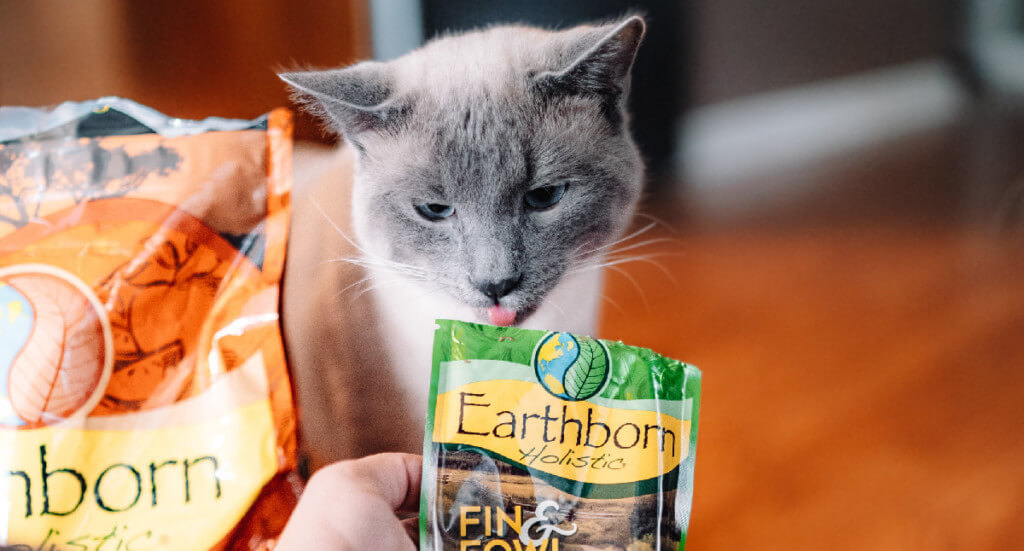
8) Should My Cat Have Dry Food?
Dry kibble cat food is a popular option for many pet parents, as it’s usually more affordable than wet food and easy to store. However, it’s important to choose high-quality dry food to ensure your cat is getting the nutrition they need.
The best healthy dry cat food will be complete and balanced, providing all the nutrients your cat needs for optimal health. It should also be made with high-quality ingredients, including real meat, fish, or poultry.
A dry cat food cats love like Earthborn Holistic Feline Vantage is a great option for your cat or kitten. It’s made with quality ingredients like healthy grains, wholesome fruits, and vegetables, and provides a complete and balanced diet.
As always, make sure to avoid dry cat food with fillers, artificial preservatives, or other unhealthy additives. These ingredients offer no nutritional value and can actually be harmful to your cat’s health. Unfortunately, lots of cat kibbles on the market today contain these ingredients, so it’s important to read labels carefully before making a purchase.
9) Does My Cat Need Supplements?
The final question to ask when choosing the best diet for your cat is whether or not they need supplements. The best wet and dry cat food will be formulated to meet all your cat’s nutritional needs, so supplements are usually not necessary.
However, there are some situations where supplements may be recommended. For example, if your cat has a medical condition that requires a special diet, they may need supplements to ensure they’re getting all the nutrients they need.
When buying a new food for your furry friend, choose the most nutritious canned cat food or dry cat food you can find. But if you’re worried about your cat’s health, always speak to your veterinarian about the best diet for their individual needs.
The Bottom Line
So, there you have it – everything you need to know about choosing the best diet for your cat. Just remember to always consult with your veterinarian first, as they’ll be able to give you tailored advice based on your cat’s individual needs.
When it comes to finding the best food for your feline friend, quality is key. Choose a product that’s complete and balanced, made with high-quality ingredients, and free from fillers and unhealthy additives. And always make sure to read labels carefully before making a purchase. With these guidelines in mind, you’ll be sure to find the perfect diet for your cat in no time!


